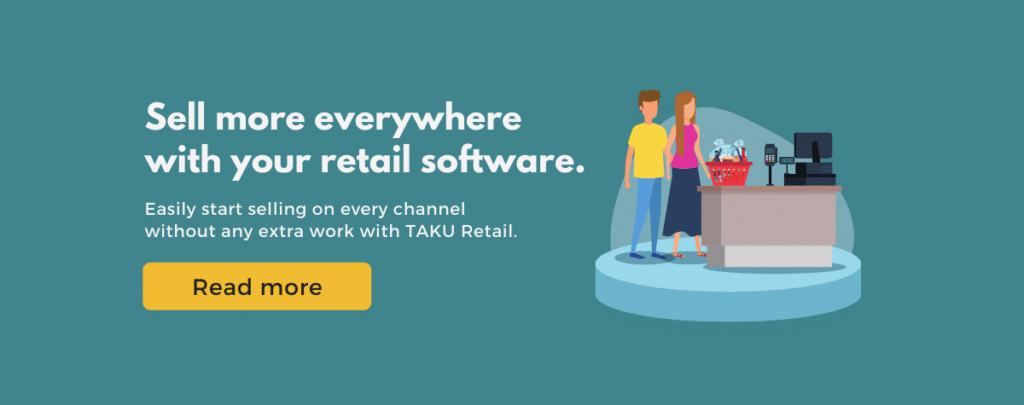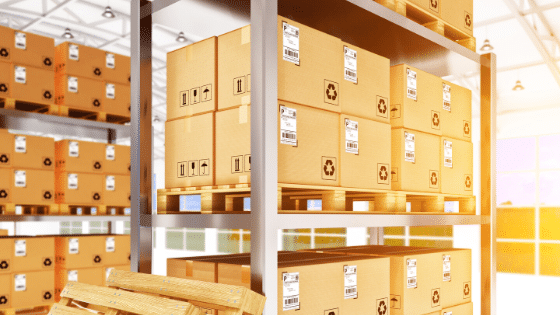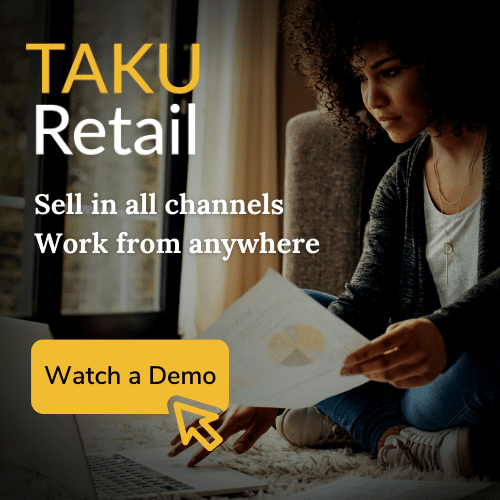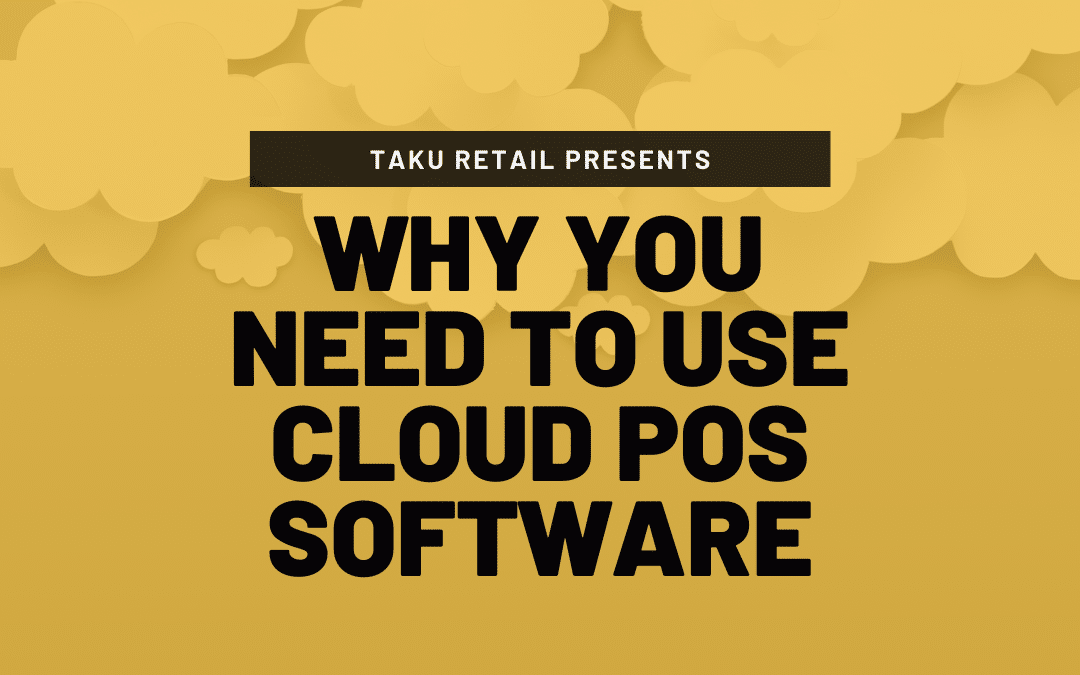
Why Retail Stores Need To Use Cloud POS Software
To keep up with shoppers today, merchants need a modern cloud POS software that will allow them to quickly adapt to market changes and easily sell both in-store and online. Cloud technology offers that flexibility.
The Coronavirus pandemic changed the way that consumers shop, work, and live. Retail is no exception. In 2020, over 80% of consumers shopped at least once online. Since the pandemic, there have been new sales strategies that retailers are adopting such as contactless payment, curbside pickup, virtual consultations, and even social commerce (purchasing products through social media). According to retail experts and shopper surveys, this new behavior is here to stay.
What Is Cloud POS Software?
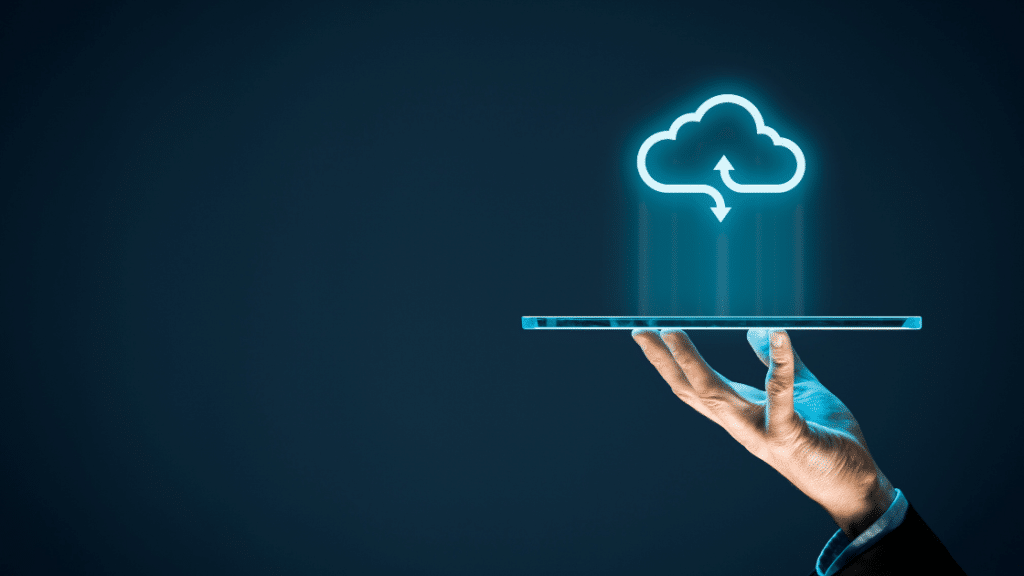
A cloud POS system is a retail management software that doesn’t need to be installed anywhere. Instead of maintaining a server computer in your physical store, cloud POS companies host your information on secure third-party services such as Google Cloud or Microsoft Azure. This is different to traditional POS systems which can only be installed and/or used on specific devices.
Cloud-based systems has advantages in the current shopper environment when compared to installed software. Some obvious advantages are its flexibility and affordability. These characteristics make a huge difference during uncertain times and are key reasons why more merchants are switching to cloud-based systems than ever before.
Until the pandemic started, multi-location retailers were the businesses most likely to look at cloud-based POS. This makes a lot of sense since the sharing of information between different stores is much harder with traditional POS systems. Since the COVID-19 pandemic, there has been an increased the demand for online sales options. For retailers with only a single physical store, this means that they need to manage customers and inventory between in-store and online sales.
Let’s take a closer look at some of the main benefits of replacing your traditional retail POS with a cloud-based system.
The Benefits Of Cloud POS Software For Retailers Today
1. Real-Time Inventory Management Across Your Entire Business
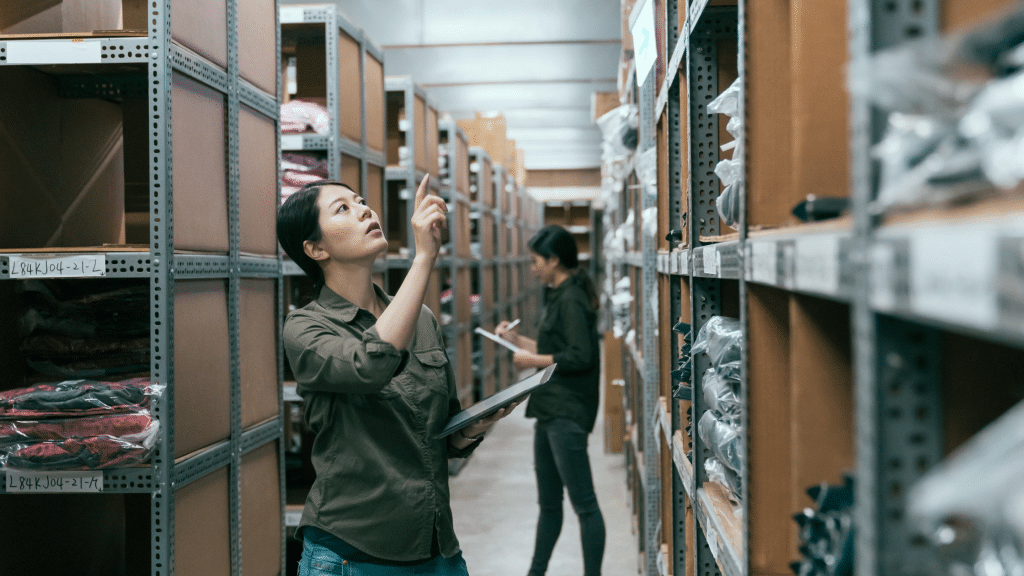
As traditional shoppers are increasingly buying online for store pick-up or delivery, retailers need a solid strategy to keep track of inventory, This can be stressful for retailers since online sales are often handled separately from traditional POS systems. Keeping track of inventory history and stock levels everywhere you sell is critical as stock-outs can lead to upset customers and lost sales.
A lot of traditional POS solutions have “cloud” options but many of these are clunky, remote workarounds that don’t sync inventory across locations in real-time, often break down, require expensive third-party tools and technical support to fix.
With uncertain demand throughout the pandemic, managing inventory can be difficult with traditional systems. This is because these systems are sometimes separate or sync only once a day can be a serious drain on resources and finances. The pandemic has also made it even harder for merchants to afford the staff necessary to manually manage inventory or check stock levels because the quantities in the POS system aren’t accurate.
With a modern cloud-based retail POS platform, retailers are able to do all of the following within a single software:
- share the same products across all locations and digital channels
- split the same product stock quantities by store, website or warehouse
- easily create new stores or stock splits to re-allocate inventory at any time
- give staff the ability to check all locations for real-time product availability
- control exactly how much access staff have to see costs and inventory details
- fulfill online sales from stores for pickup or delivery with ease
- buy online, pay in-store during pickup
- buy online, add more / exchange / return in-store
- minimize stock-outs because you can quickly adjust purchasing or move stock quantities around as sales happen, not after the fact
2. Flexibility To Work From Anywhere, On Any Device

A cloud-based retail POS system provides greater mobility which basically means that retailers can sell from anywhere inside the store, outside the store or online 24/7. The COVID-19 pandemic has proven that retailers need this kind of flexibility in their business. During the recent lockdowns, retailers with access to their POS systems from anywhere were able to immediately work from home or take payments outside of their stores during order pickup.
Modern systems such as TAKU Retail can function on any device which makes it even more cost-effective for retailers to adopt. True cloud systems are not tied to any specific device. Where earlier cloud systems are limited to only a single type of hardware (e.g. iPads), the latest cloud POS systems allow retailers to use any existing web-enabled devices. Similar to how people sharing a Netflix account can watch shows on Windows or Mac computers, Android or Apple smart devices, people selling using a cloud POS can work off of any of these devices together. This type of flexibility helps merchants reduce the overall cost of hardware, even as they grow, since almost any existing device can be turned into a station.
And accessibility doesn’t refer only to selling or accessing reports. While older installed or cloud systems only give retailers access to specific functions, true cloud systems give you full access to all of the features in the software so you can run your business from anywhere. This also includes managing access rights all from one dashboard. If you’re a larger retailer, you should be able to quickly manage (or revise) the access rights for each staff member across all devices wherever you happen to be working.
3. Manage Shoppers From Every Channel In One Dashboard
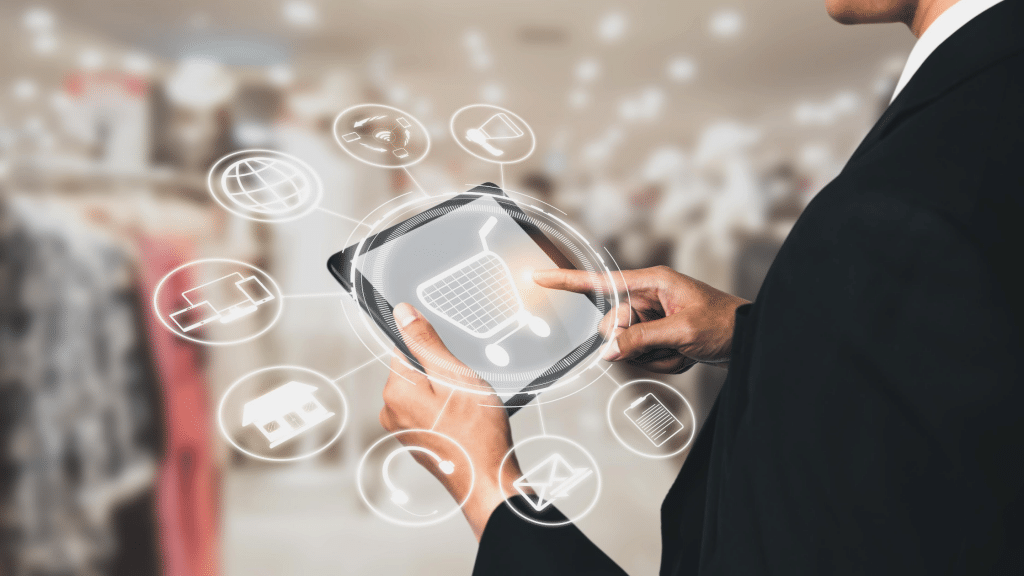
While the Coronavirus pandemic will pass, changes in consumer shopping habits are here to stay. Retail consumers are now shopping locally, cost-consciously, and digitally. Being there for your customers wherever they are is often called “omnichannel retail” or “unified commerce”.
What’s important to remember is that being omnichannel is about more than simply making sales in all channels. It’s about providing a seamless experience for shoppers. It means making it easier for shoppers to find you, buy from you or even bring something back to you. There’s no doubt that taking orders online is important to the survival of a lot of retailers during the pandemic. But in the long-term, omnichannel retailers are more profitable because they have more opportunities to engage with their shoppers across different channels. And omnichannel drives higher-margins in-store sales together with the convenience of online 24/7 shopping.
Another thing to keep in mind is that online sales naturally come with higher return rates as shoppers make mistakes or shipments are damaged. Being able to manage all of your sales and returns across all channels from stores is important to minimize returns and to minimize the costs of these returns – e.g. by offering in-store returns or exchanges to avoid losing sales or paying double the processing fees.
4. Cloud POS Software Grows With You More Easily
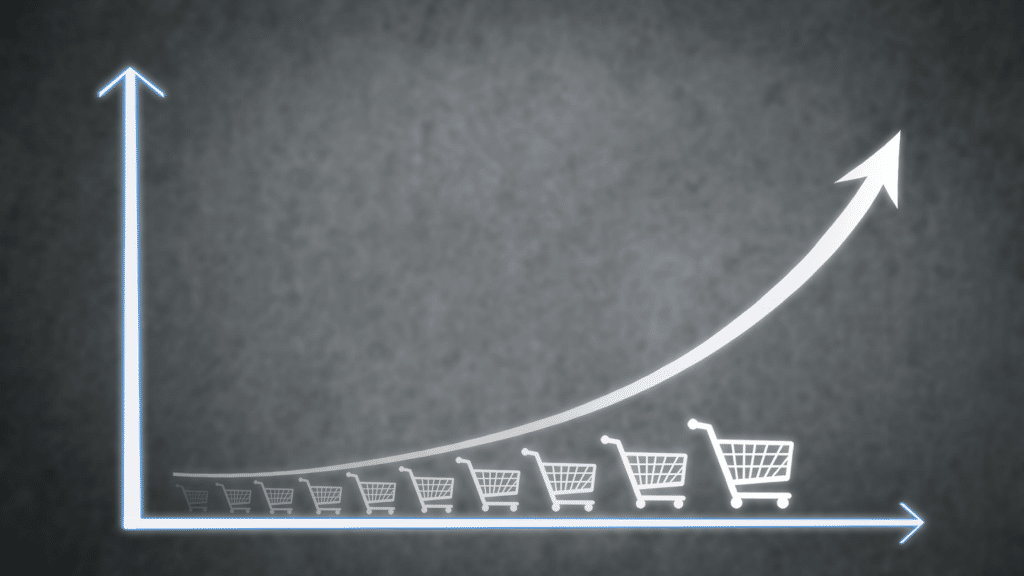
Many retailers experienced significant growth in online sales and store pickup during the pandemic. In fact, in some essential sectors, traditional stores were unable to keep up with the demand as they struggled to handle the sudden boost in traffic.
As your business grows and becomes more complex, your retail management system must be able to accommodate new stores, new sales channels, new employees, and new product lines without any limitations. A flexible unified commerce system will have the built-in options required for you to adapt as your business grows. This includes functions such as unlimited physical stores, unlimited back office users, unlimited stock quantity splits and customizable tax rules. With customizable settings, fast onboarding support and transparent pricing, modern cloud systems offer retail owners a flexible tailored solution that can easily scale without hidden costs.
5. Automatically Be Found Online Locally
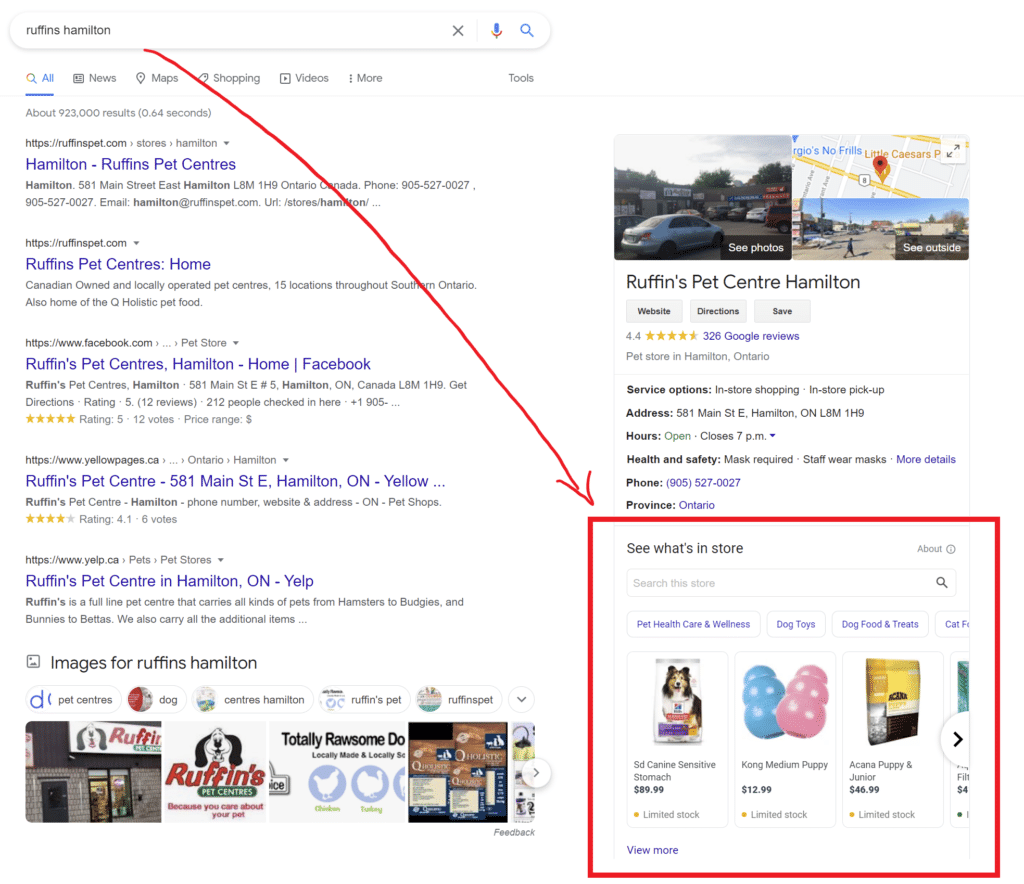
With shopping behavior shifting constantly throughout the pandemic, being able to track, manage, and engage with customers across all channels is key for long-term success. An all-in-one cloud POS software allows you to handle all of your touchpoints from in-store shopping and curbside pickup to local delivery, all under a single login. It allows retailers to be flexible with their business processes and adapt quickly when the environment changes.
With traditional systems, data needs to be manually managed between different sales channels. In comparison, cloud-based systems give merchants access to shared retail data which makes it significantly easier for them to see trends as they happen in real-time.
Built with next-generation technology, modern cloud platforms are even able to help retailers leverage their own retail data to attract more shoppers. As the first POS company to be a Trusted Google Partner, TAKU is the first platform in the industry to automatically help retailers be found online by people searching nearby for what they sell. Not only can newer cloud POS systems increase sales when shoppers are engaged, they can now help retailers get in front of shoppers before they even leave their homes.
Make sure you’re using retail technology that can keep up with the rapidly changing world post-pandemic. Make the switch to cloud today – it’s easier than you think.
Want to know how TAKU can help you sell anywhere and at anytime?
